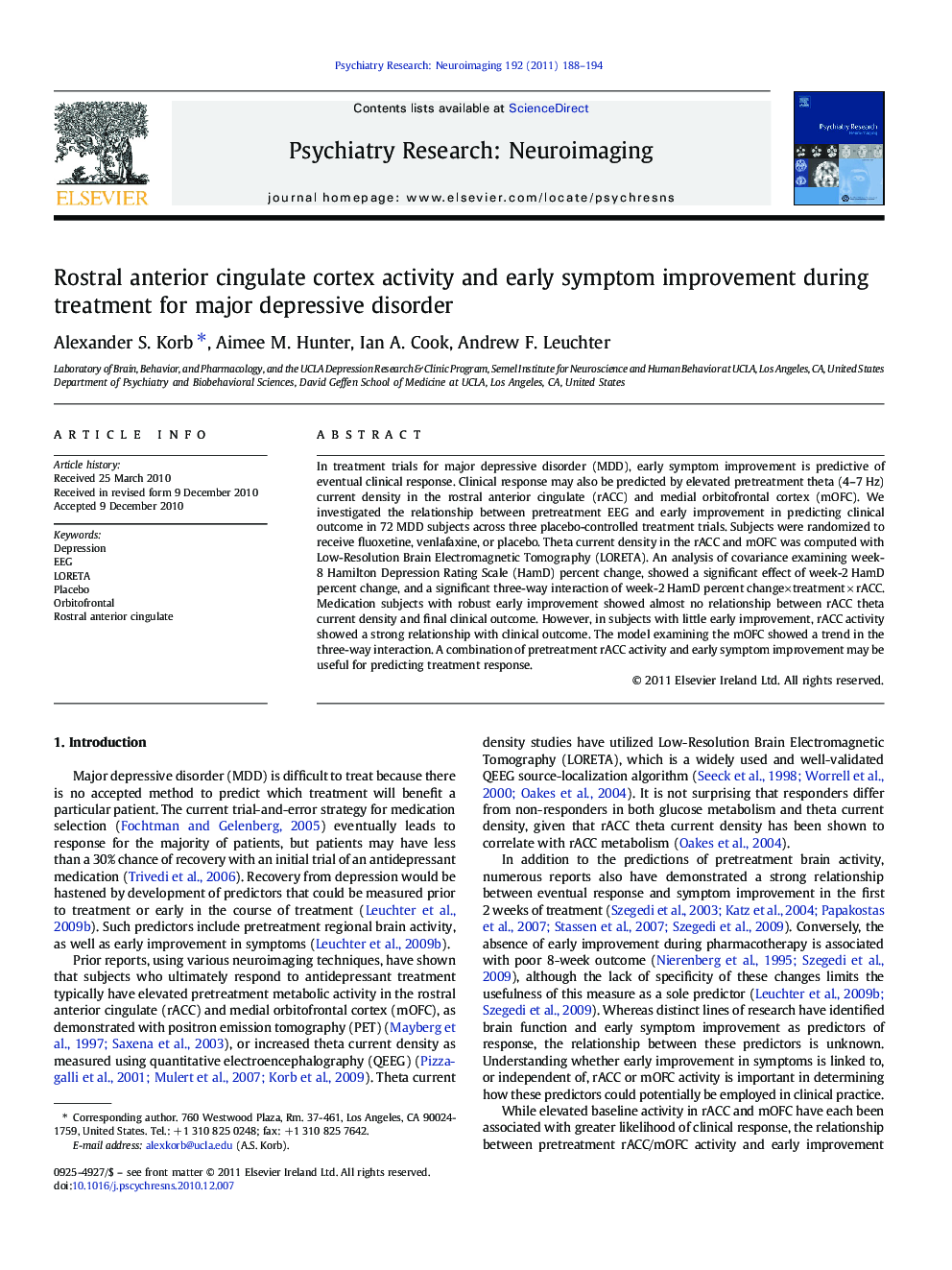| Article ID | Journal | Published Year | Pages | File Type |
|---|---|---|---|---|
| 334542 | Psychiatry Research: Neuroimaging | 2011 | 7 Pages |
In treatment trials for major depressive disorder (MDD), early symptom improvement is predictive of eventual clinical response. Clinical response may also be predicted by elevated pretreatment theta (4–7 Hz) current density in the rostral anterior cingulate (rACC) and medial orbitofrontal cortex (mOFC). We investigated the relationship between pretreatment EEG and early improvement in predicting clinical outcome in 72 MDD subjects across three placebo-controlled treatment trials. Subjects were randomized to receive fluoxetine, venlafaxine, or placebo. Theta current density in the rACC and mOFC was computed with Low-Resolution Brain Electromagnetic Tomography (LORETA). An analysis of covariance examining week-8 Hamilton Depression Rating Scale (HamD) percent change, showed a significant effect of week-2 HamD percent change, and a significant three-way interaction of week-2 HamD percent change×treatment × rACC. Medication subjects with robust early improvement showed almost no relationship between rACC theta current density and final clinical outcome. However, in subjects with little early improvement, rACC activity showed a strong relationship with clinical outcome. The model examining the mOFC showed a trend in the three-way interaction. A combination of pretreatment rACC activity and early symptom improvement may be useful for predicting treatment response.
